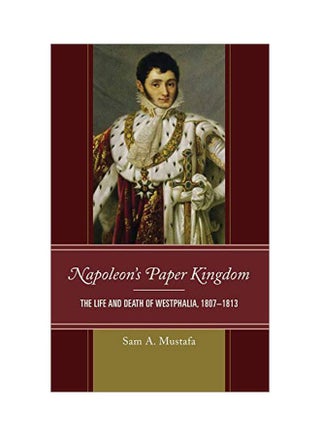| المراجعة التحريرية | Sam Mustafa is to be heartily congratulated on his outstanding new work chronicling the history of the ephemeral Kingdom of Westphalia in Napoleonic Germany. Despite its importance in both the story of the Napoleonic era and the broader sweep of Germany's national development, Westphalia has not been the subject of a comprehensive, professional historical analysis for more than a century. Mustafa has filled this astonishing gap in sterling fashion, meeting the highest expectations of scholarship while being eminently readable. His book is a series of firsts: the first serious study since the late 1800s, the first ever in English, and the first to provide an assessment outside the strictures of either Prussian historical biases or post-Napoleonic romanticism. Combining careful consideration of the historiography with unprecedented primary research and a mastery of the secondary literature, he presents a thoughtfully nuanced view of a kingdom that sat at the center of Germany for six tumultuous years and whose brief existence continues to proffer powerful interpretive insights for the Napoleonic epoch and the evolution of Germany as a state and society. -- Colonel (retd) John H. Gill, author of Thunder on the Danube: Napoleon's Defeat of the Habsburgs Sam Mustafa's groundbreaking study is the first complete and scholarly history of the Kingdom of Westphalia since the nineteenth century. Drawing from years of intensive research in state archives, Napoleon's Paper Kingdom covers all the complex facets of government, religious, and social affairs of Napoleon's model state. It is a seminal book, well-researched and highly recommended for all historians and readers interested in the Napoleonic period. -- Wolf D. Gruner, University of Rostock This well-researched history of the Kingdom of Westphalia examines the perspectives of its French architects and its German subjects. Mustafa highlights Napoleon's plan for the kingdom, the practice of its governance, and day-to-day life within Westphalia. Outstanding chapters address the expansion of Westphalia, the significance of the wars, the many colorful characters who sought to make the state work, and those who opposed it. Very accessible to the general public, this book is an excellent contribution to our understanding of Napoleonic state-building and warfare and the diverse fate of Germans living under French rule. -- Katherine Aaslestad, West Virginia University |
استرجاع مجاني وسهل
أفضل العروض

